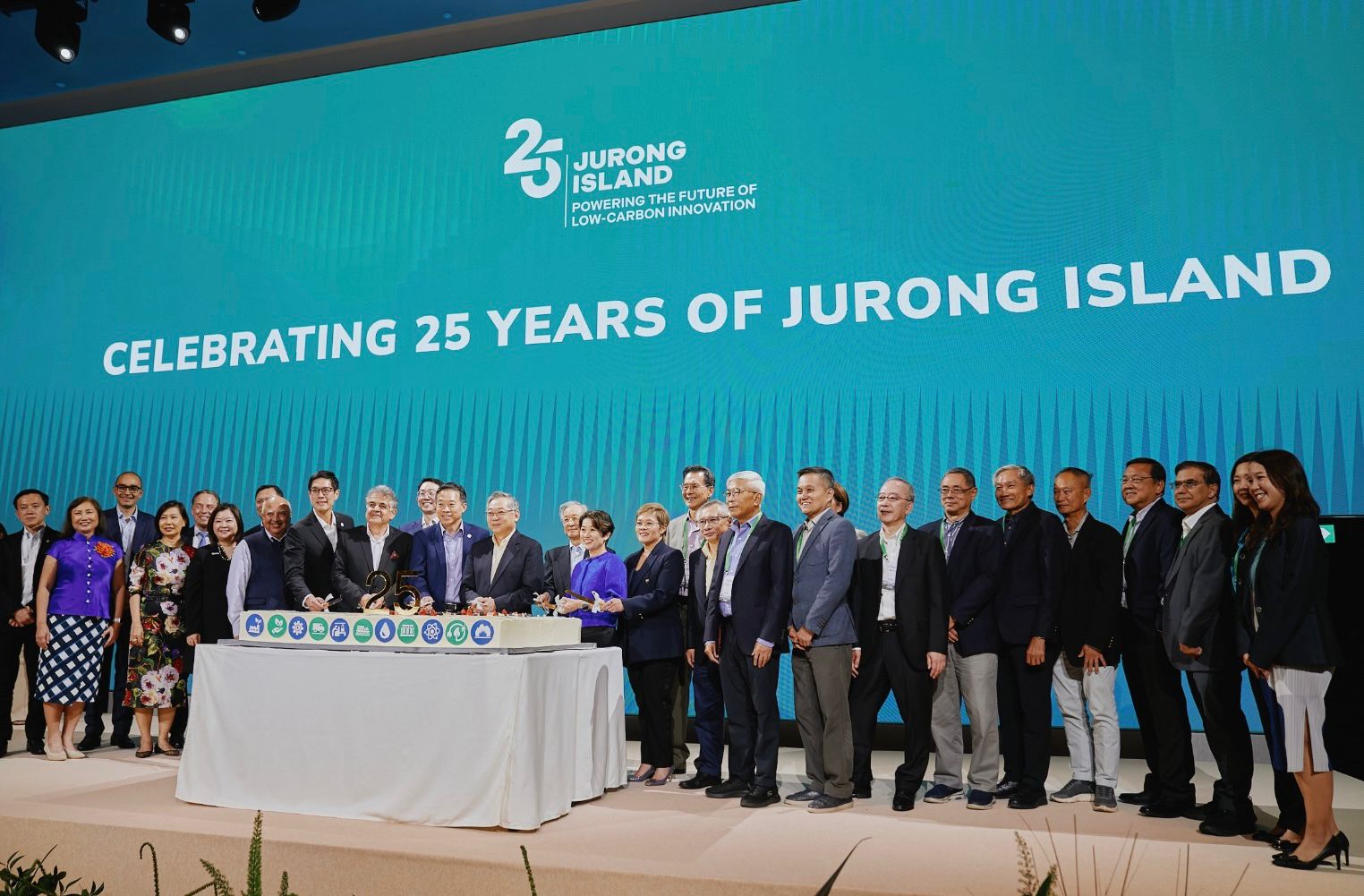This press release was issued by Keppel Ltd.
Comprehensive collaboration on integrated multi-energy systems, district energy and digital optimisation, positioning Jurong Island as Singapore’s low-carbon living lab for new energies.
Keppel Ltd., through its Infrastructure Division (Keppel), and JTC Corporation (JTC) have signed a Memorandum of Understanding (MOU) to explore and facilitate research, pilot studies, and proof-of-value initiatives that demonstrate technically and commercially viable low-carbon energy infrastructure solutions. The collaboration will leverage Jurong Island as a living lab for innovation and scalable deployment for new energies.
Mr Gan Kim Yong, Deputy Prime Minister and Minister for Trade and Industry, witnessed the announcement of the MOU, between Mr Poh Tiong Keng, Executive Director, Energy-as-a-Service, Infrastructure, Keppel, and Ms Cindy Koh, Group Director, Green Growth, JTC, at the Jurong Island 25th Anniversary Dinner.
Advancing Low-Carbon and Digitally-Enabled Infrastructure
The MOU reflects a shared commitment to accelerating Singapore’s energy transition and strengthening the nation as a global hub for sustainable and digital-ready industrial ecosystems.
Under the MOU, Keppel and JTC will work together in four key areas to accelerate Jurong Island’s transformation into a next-generation low-carbon energy and industrial ecosystem.
1. Integrated Low-Carbon District Energy Solutions
Keppel and JTC will jointly study the piloting of district-level energy and thermal infrastructure to enhance efficiency and resilience across Jurong Island. These efforts include exploring shared cooling, thermal storage, waste-heat utilisation, and advanced optimisation platforms.
The collaboration will also support the development of Singapore’s largest low-carbon data centre park, with a potential capacity of up to 700 MW, positioning Jurong Island as a regional hub for sustainable digital infrastructure.
2. Smart Microgrid Testbeds
Both parties will explore smart microgrid pilots and a regulatory sandbox, in consultation with relevant agencies. These initiatives will test new solutions such as multi-energy integration, advanced grid technologies, and energy storage systems to enhance flexibility, reliability, and renewable-energy adoption.
3. AI-Enabled Digital Energy Layer
Keppel and JTC will assess the development of an intelligent digital platform to coordinate thermal and electrical systems across the island. By leveraging AI-driven forecasting and real-time optimisation, the platform aims to improve energy management and enable new value-added services in areas such as energy flexibility, data analytics, and asset performance.
4. Energy-as-a-Service (EaaS) Models
The parties will also explore a unified, multi-energy EaaS model that integrates the above initiatives to deliver higher energy efficiency and greater operational resilience. Such a model could reduce peak demand, support renewable integration, and enable circular-energy solutions, paving the way for scalable and commercially viable low-carbon infrastructure on Jurong Island.
Strengthening Public–Private Collaboration
Ms Cindy Lim, CEO of Keppel’s Infrastructure Division, said, ““This strategic collaboration marks another step forward in Singapore’s stewardship of our industrial ecosystems — decarbonising while strengthening national competitiveness. Keppel is honoured to contribute as a pathfinder and operator, translating emerging technologies into real-world impact across our industrial landscape, from the integration of renewable energy and district-level decarbonisation to emerging low-carbon fuels and next-generation, low-carbon data centre parks. Together with JTC, we aim to unlock new opportunities for industry and the wider economy, and to lay the foundation for a net-zero future that is resilient, economically vibrant, and globally relevant.”
“Accelerating Jurong Island's transformation into a low-carbon hub requires collective action from all industry players. This strategic partnership with Keppel drives next-generation infrastructure integration that strengthens energy resilience and enables island-wide scaling. We welcome more collaborations to develop, pilot and scale new energy and low-carbon solutions on Jurong Island,” said Ms Jacqueline Poh, Chief Executive, JTC.
Jurong Island is home to more than 100 leading global energy and chemical companies and is central to Singapore’s strategy to drive industrial decarbonisation under the Singapore Green Plan 2030. The MOU builds upon Keppel’s energy and utilities footprint on Jurong island, including Keppel Merlimau Cogen power plant, and Singapore’s most advanced and first hydrogen-compatible power plant, Keppel Sakra Cogen, and other energy transition initiatives, such as the front-end engineering and design study for a 55-65 MW ammonia power plant, terminal infrastructure and bunkering solutions, as well as upgrading and intensification of shared utility corridors to support new chemicals, low-carbon fuels, and emerging energy applications.
These initiatives will also bolster Keppel’s track record as a proven system integrator of low-carbon utilities and digital energy infrastructure, aligned with JTC’s vision for an integrated, future-ready industrial ecosystem.
This collaboration represents a key step in translating innovation into commercially deployable and scalable low-carbon solutions, positioning Singapore at the forefront of sustainable industrial transformation.
Annex


